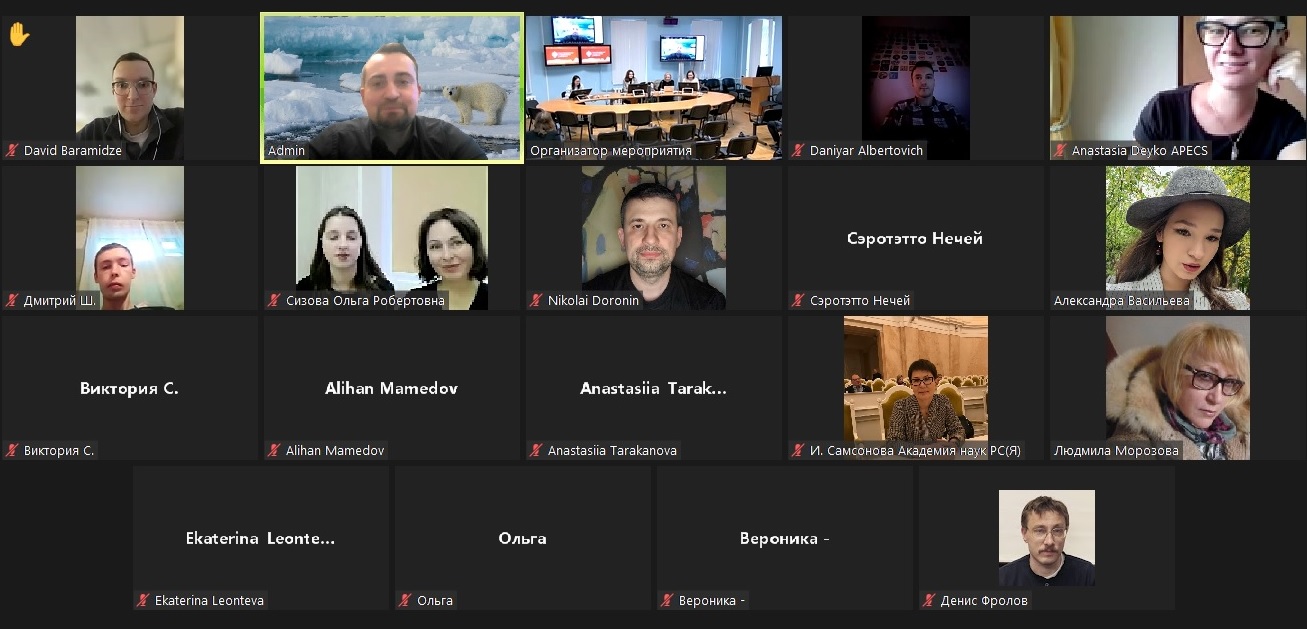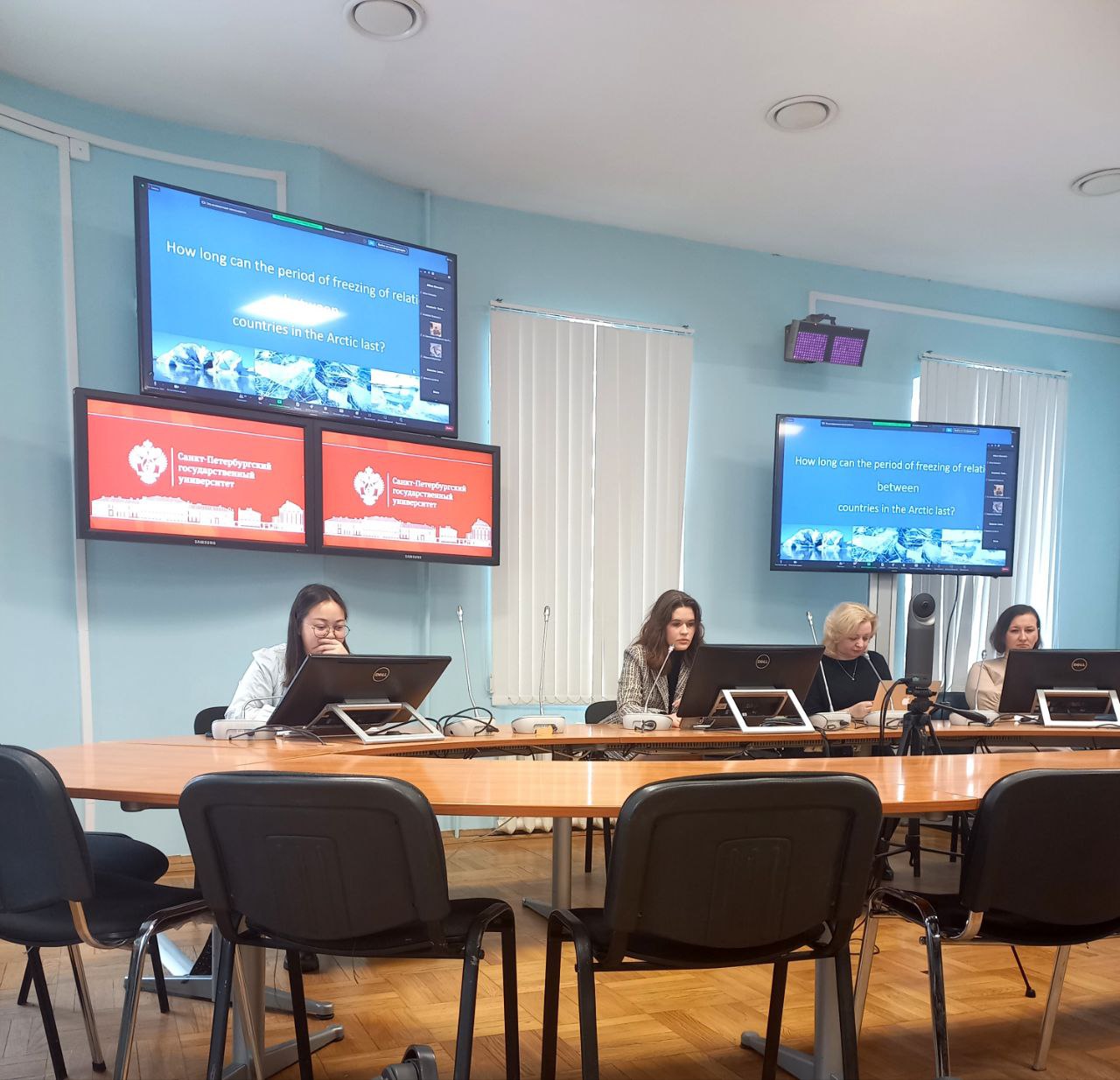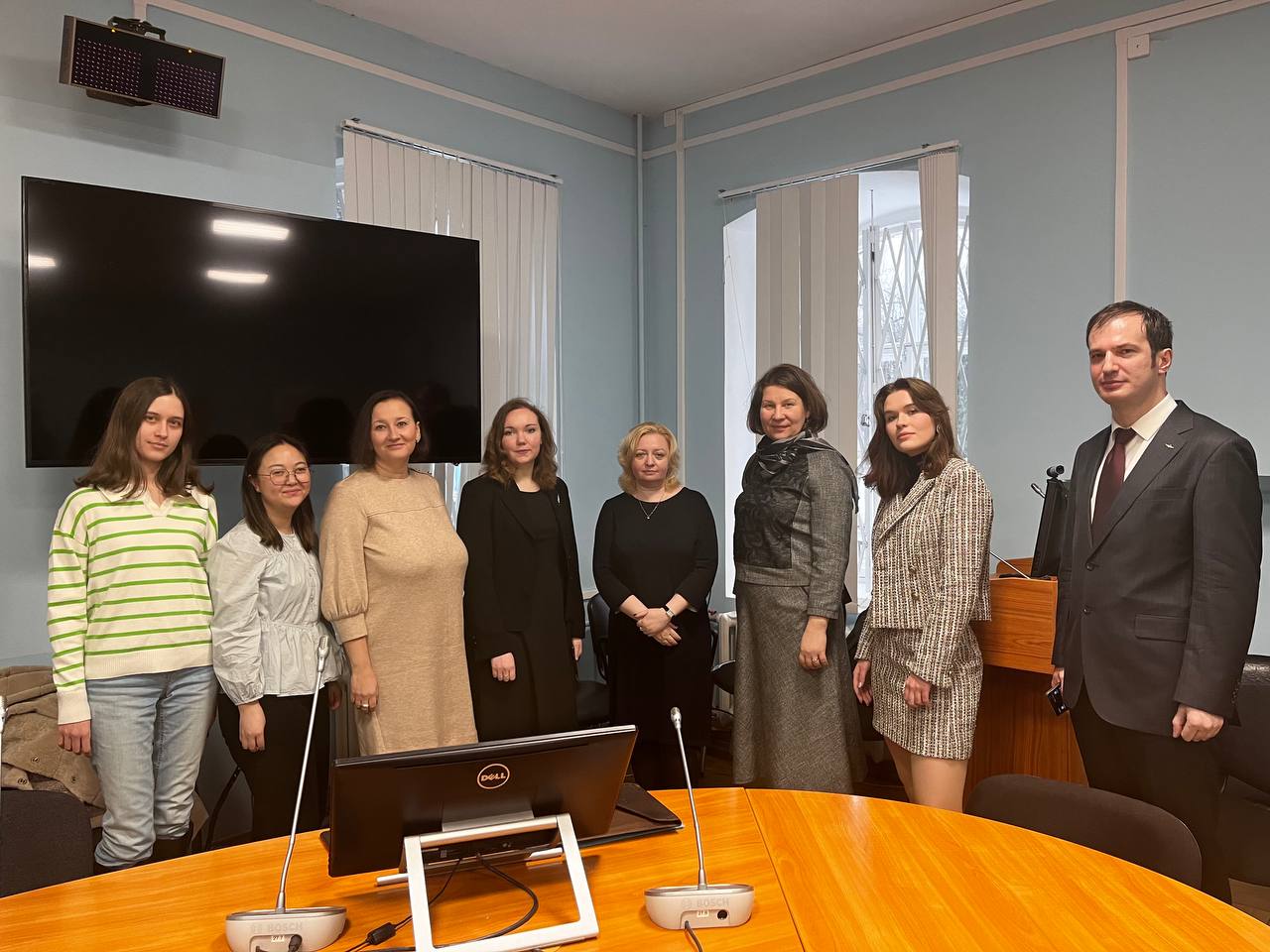Press Release Following The Round Table -"The Arctic. Horizons of cooperation. An initiative by Arctic Youth". The Arctic Youth project, in cooperation with the Faculty of International Relations of St. Petersburg State University (SPbSU) on February 26, 2024, held an international event - a round table "The Arctic. Horizons of Cooperation."
The event, held in a hybrid format, was attended by approximately 50 people from Russia, Iceland, China, India and Peru. During the round table, possible priority areas for international cooperation in the Arctic were discussed in light of the geopolitical challenges that Russia has been facing in recent years.
At the beginning of the round table, Doctor of Political Sciences, Professor of the Department of World Politics, Faculty of International Relations of St. Petersburg State University Natalya Yuryevna Markushina made a welcome speech. She emphasized the importance for Russia to find new possible ways to develop international cooperation in the Arctic region, among which she especially highlighted scientific diplomacy and ecology.
Also, the head of the Department for Multilateral Humanitarian Cooperation and Cultural Relations (DMHC) of the Russian Ministry of Foreign Affairs, the chairman of the Council of Young Diplomats of the Russian Ministry of Foreign Affairs (CYD), Konstantin Olegovich Kolpakov, delivered a greeting. He emphasized that the region is of interest from the point of view of the need to preserve the environment and climate and also for having high trade and economic importance.
 After this, Arina Novitskaya, a member of the “Arctic Youth” project and a student at St. Petersburg State University, made a presentation about the project, talking about its goals, objectives and areas of activity. Speaking about international cooperation within the framework of the project, she emphasized that its participants are equally committed to interaction and communication with young people interested in the Arctic from the BRICS countries and from the Arctic countries.
After this, Arina Novitskaya, a member of the “Arctic Youth” project and a student at St. Petersburg State University, made a presentation about the project, talking about its goals, objectives and areas of activity. Speaking about international cooperation within the framework of the project, she emphasized that its participants are equally committed to interaction and communication with young people interested in the Arctic from the BRICS countries and from the Arctic countries.
Next, Nikolai Sergeevich Doronin, Chairman of the Board of the Project Office for Arctic Development (PORA), made a presentation on the topic “The Past and Future of International Relations in the Arctic.” He noted that currently Indian, Chinese and Latin American companies are showing great interest in implementing economic projects in the Arctic zone of Russia. Opportunities for these countries have largely opened up due to politically motivated refusals of Western companies to cooperate with Russia in the Arctic.
Executive Director of "Arcticportal.org" Halldor Johannsson made a presentation on the topic "The Arctic. The importance of international cooperation for a sustainable future." In his presentation, Halldor Johannsson noted that currently, not least due to events in the Middle East and the Suez Canal, the importance of the Northern Sea Route (NSR) is constantly increasing in a Global context. This development emphasizes the importance of increasing and sharing knowledge, not least environmental monitoring, and the development of needed infrastructure for safe navigation. NSR is a great business opportunity of increasing interest to Japan, Korea, India, China and Southeast Asian countries. Halldor Johannsson believes that the Arctic Council is the most effective and important instrument for cooperation between Russia and Western countries on the Arctic as work within it and the Arctic Economic Council partially continues, though still at a slow pace.
Arcticportal.org has launched an "expert-to-expert" initiative, which aims to continue the dialogue at the international level, as well as the exchange of scientific data, such as information related to permafrost and climate change. He called for joining this initiative. Also he noted that the Northern Forum Foundation was registered in Iceland, the purpose of which is to support youth activities including youth from Russia. The foundation will continue to host online and live meetings.
 Also at the event, Maria Lvovna Lagutina, Doctor of Political Sciences, Professor of the Department of World Politics of the Faculty of International Relations of St. Petersburg State University, spoke with a report “Prospects for cooperation of the BRICS countries in the Arctic.” According to the speech of M.L. Lagutina, Russia faces the task of diversifying international contacts and finding new partners for the development of the Arctic that could bring investment in promising economic projects. Among the RIC countries, China is the main partner for Russia. India - to a lesser extent, but also active. In cooperation between Russia and India, joint work is underway on Arctic research stations, expanding the fleet of ice-class polar research vessels and creating an international scientific and educational platform. Among the BRICS+ countries she singled out the UAE, which plans to take part in the construction of an LNG plant in the Arctic, as well as Iran because of its interest in geological research in the Arctic.
Also at the event, Maria Lvovna Lagutina, Doctor of Political Sciences, Professor of the Department of World Politics of the Faculty of International Relations of St. Petersburg State University, spoke with a report “Prospects for cooperation of the BRICS countries in the Arctic.” According to the speech of M.L. Lagutina, Russia faces the task of diversifying international contacts and finding new partners for the development of the Arctic that could bring investment in promising economic projects. Among the RIC countries, China is the main partner for Russia. India - to a lesser extent, but also active. In cooperation between Russia and India, joint work is underway on Arctic research stations, expanding the fleet of ice-class polar research vessels and creating an international scientific and educational platform. Among the BRICS+ countries she singled out the UAE, which plans to take part in the construction of an LNG plant in the Arctic, as well as Iran because of its interest in geological research in the Arctic.
Next, the deputy chairman of the Association of Indigenous Peoples' Peoples " Ямал-потомкам! (Yamal to Descendants!)", Nechey Serotetto spoke at the event where she presented a report on the topic “My experience of international cooperation.” She reported on her experience in participating in the School of Public Diplomacy of Indigenous Peoples (SDP), after winning which she received the opportunity to participate in the UN expert mechanism in Geneva. She also spoke about her positive experience of participating in the UN Global Youth Forum in Rome at the headquarters of the Food and Agriculture Organization of the United Nations (FAO) and in the 28th UN Climate Change Conference.
The event concluded with a speech of Yu Zhang, a post-graduate student and assistant at the Department of American Studies at St. Petersburg State University, on the topic "Scientific cooperation between China and Russia in the Arctic". In her message, Yu Zhang noted that the geopolitical challenges facing Russia are at the same time the opportunities for developing effective cooperation with China in the field of shipping, resource extraction, scientific research and building humanitarian communications. The Arctic is a "hot" topic in China. In most universities, researchers and students write about the region.
Source: Arctic Youth

